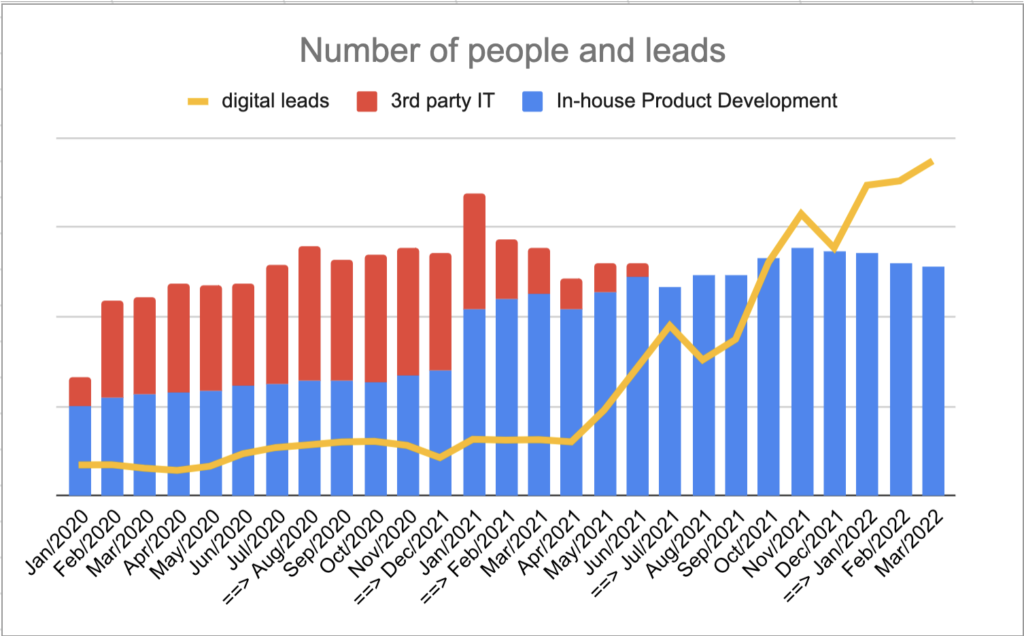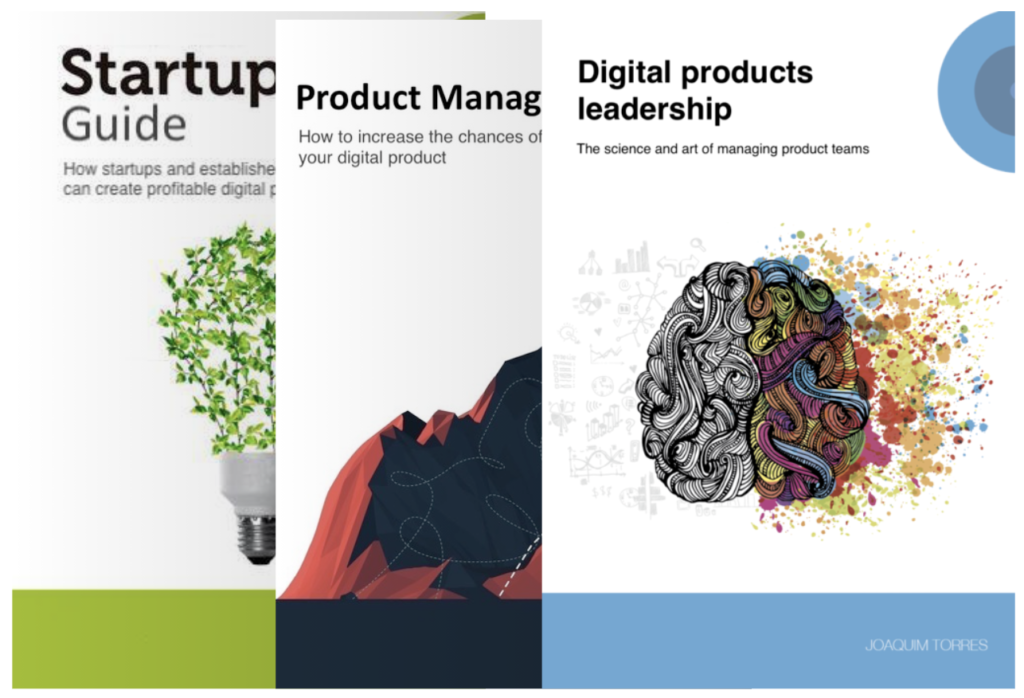Growth: be a “data geek”
29 de March, 2022Why business people hate discovery
12 de April, 2022I’ve been working for quite some time in companies undergoing a digital transformation or that have people, including C-level, not familiar with digital product development methods.
One of the biggest challenges in these companies is moving from a “business demands => technology implements” mindset into a “business brings problems/needs => technology works on understanding these problems/needs with the user, testing solution hypothesis, and implementing a validated solution hypothesis” mindset.
Normally, business people tend to think and say things like “I’m the business person so I’m the person who understands the most about our business problems/needs and how to solve them. You just have to implement what I say”. This business person is thinking about the technology team as a solution implementer team, not a problem solver team or, as Marty Cagan puts it, as a feature team, not an empowered product team.
More recently, I wrote an article explaining the differences between these two types of teams and another explaining the nomenclature product teams and feature teams.
So, why “business demands => technology implements” model does not work?
Instead of giving you just one reason, I’ll list 6 reasons:
- The “business demands => technology implements” model is unlikely to produce innovative products that customers love. That’s because business people don’t know what’s possible. Knowing what is possible and testing solution hypotheses is one of the main responsibilities of a product development team.
- Successful tech companies like Apple, Amazon, Google, and Netflix do not use the “business demands => technology implements” model to build their successful products. They prefer and use the “business brings problems/needs => technology works on understanding these problems/needs with the user, testing solution hypothesis, and implementing a validated solution hypothesis” model of product development since they know this model brings the best results.
- The “business demands => technology implements” model generates an adversarial position between business and technology and, consequently, the commitment and engagement of the technology team decreases, which causes high staff turnover and increased frustration among business people, which ends up generating a vicious circle.
- Technology people do not feel responsible for the result of what they build, since the business area has defined what to do.
- The business area may demand developments that are good for the individual interests of each business area, but not necessarily good for the company.
- The business area can ask for complex things that will cause long development cycles that, the longer they are, the greater the frustration generated and the greater the chances of the delivery not satisfying the needs and not generating the expected results.
Does the other model generate better results?
The fact that the “business demands => technology implements” has many issues, doesn’t necessarily mean that the other model generates better results. To answer this question, i.e., if the “business brings problems/needs => technology works on understanding these problems/needs with the user, testing solution hypothesis, and implementing a validated solution hypothesis” delivers better results I’ll share an interesting case.
I joined Lopes, the biggest Real Estate consultancy company in Brazil, in late Aug/2020 as CDO (Chief Digital Officer) with the mission to lead their digital transformation. After my onboarding, we implemented OKR, ran the 4Q2020 with the OKR tool, and defined strategic objectives for 2021. Back then, more than 50% of the team was from 3rd-party IT consultancy companies. One of our strategic objectives for 2021 was to phase out our engagement with these IT consultancy companies and hire engineers, product designers, and product managers to build our in-house product development teams. We started the phase-out in Jan/2021 and ended in Jul/2021. During the same time, we hired and onboarded many engineers, product designers, and product managers to replace the product development capability that we had with the parting IT consultancy companies.
The majority of IT consultancy companies run under the “business demands => technology implements” model where they bill by the hour and are measured by their deliverables, without any concern if deliverables bring business results.
The main objective of our digital team has always been since its inception back in 2019 to bring more digital leads, i.e., to bring from digital sources more potential customers interested in buying a property. The chart below shows that when IT consultancy companies, measured by features delivered, were at Lopes we were unable to fulfill this objective. As soon as we started to phase out the IT consultancy companies in Feb/2021 and hire and onboarded engineers, product designers, and product managers to build our in-house product development team which was measured by generating or potentializing leads through digital, we started to see an increase on the numbers of leads in May/2021.

Summing up
- One of the biggest challenges in companies undergoing digital transformation is moving from a “business demands => technology implements” mindset into a “business brings problems/needs => technology works on understanding these problems/needs with the user, testing solution hypothesis, and implementing a validated solution hypothesis” mindset.
- There are 5 reasons why the “business demands => technology implements” model doesn’t work. Best tech companies don’t use it. Generates adversarial behavior between business and tech teams, tech teams don’t feel responsible for the results, business people may demand developments not aligned with company goals and business people may demand developments that are too complex and that take too long to bring results.
- The benefits of transitioning from a “business demands => technology implements” model into a “business brings problems/needs => technology works on understanding these problems/needs with the user, testing solution hypothesis, and implementing a validated solution hypothesis” model can be seen when we move from measuring performance by the number of deliverables to measuring performance by results achieved.
Digital Product Management Books
Do you work with digital products? Do you want to know more about how to manage a digital product to increase its chances of success, solve its users’ problems, and achieve the company’s objectives? Check out my Digital Product Management bundle with my 3 books where I share what I learned during my 30+ years of experience in creating and managing digital products:
- Startup Guide: How startups and established companies can create profitable digital products
- Product Management: How to increase the chances of success of your digital product
- Leading Product Development: The art and science of managing product teams
You can also acquire the books individually, by clicking on their titles above.

Mentoring and advice on digital product development
I’ve been helping several companies extract more value and results from their digital products. Check here how I can help you and your company.
